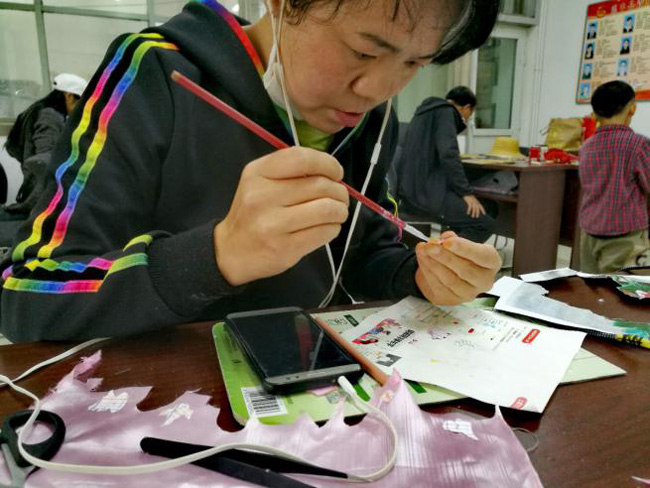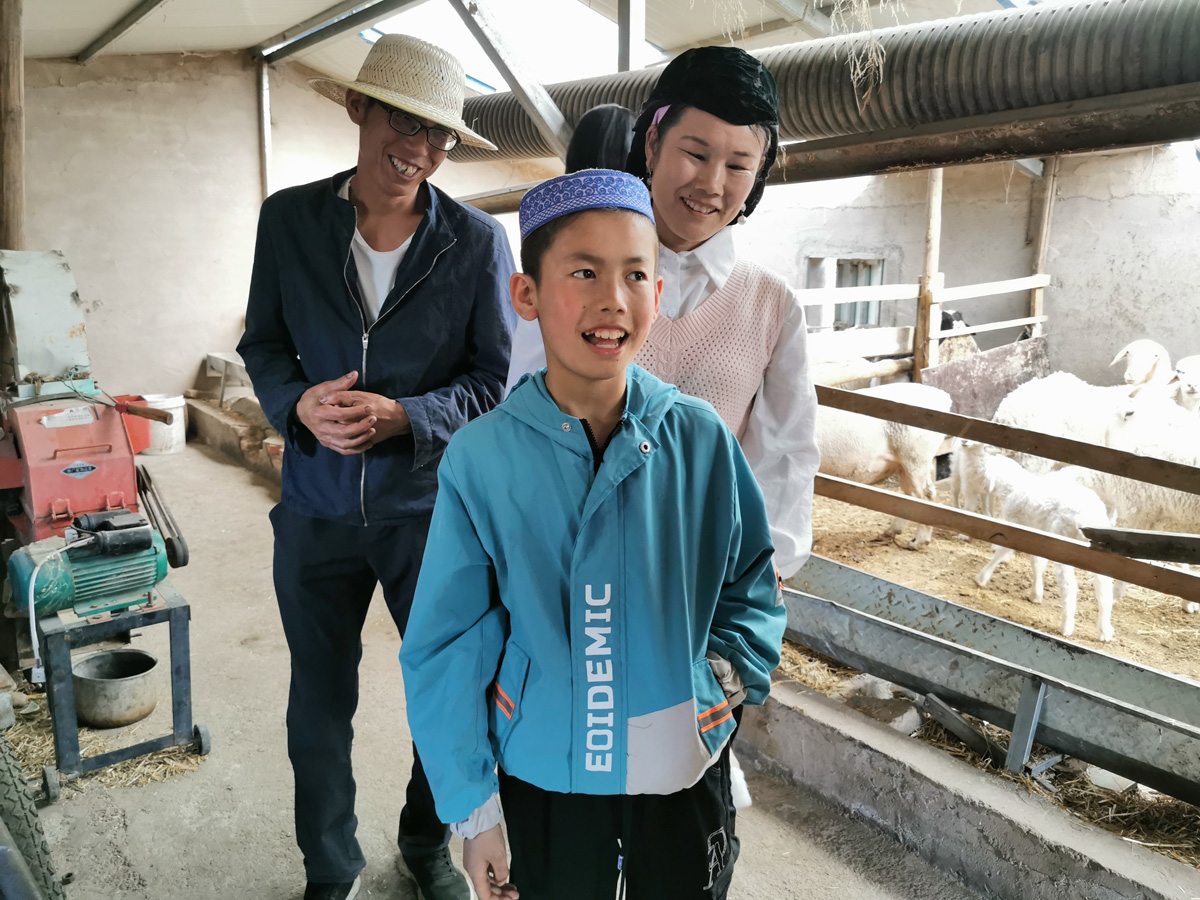In rural China, new opportunities for persons with disabilities
IFAD Asset Request Portlet
Asset Publisher
In rural China, new opportunities for persons with disabilities
Estimated reading time: 4 minutesWhen she was growing up, Mrs Wang Cairong says, she was scared to interact with people outside her immediate family. Like her father and sister, she has vision and speech impairments – disabilities that have weighed heavily on her self-esteem since childhood. And as a member of the Hui community, one of China’s largest ethnic minority groups, she comes from a background in which being a woman with disabilities made her opportunities for earning her own livelihood very low indeed.
Even after she married, she was unable to find a job. Agriculture is the dominant way of life in the rural areas of Mrs Wang’s home province of Qinghai, in northern China, and opportunities in the agricultural sector for those with disabilities are limited. It therefore fell to her husband to provide for her and their two young children.
Mrs Wang’s story is common to many persons with disabilities worldwide – especially those who live in impoverished rural communities, where pre-existing economic and social barriers leave them at increased risk of being excluded. Fortunately, awareness of this problem is growing, and more and more governments are addressing this in their national policies.
When China initiated its plan to eliminate extreme poverty by 2020, it quickly realized that persons with disabilities were disproportionately represented among the remaining poor. By 2019, there were only about 479,000 persons with disabilities living in extreme poverty – down from 7.19 million in 2014 – but they made up nearly half of all those in extreme poverty. The Government of China thus began promoting programmes dedicated to including persons with disabilities in their local economies. Through its rural development work in the country, IFAD has proven to be a capable and efficient contributor to this national effort.
One IFAD-supported project active in Qinghai between 2015 and 2020 introduced non-agricultural activities tailed to persons with disabilities from the very beginning of its work. The initiative, in partnership with the China Disabled Persons’ Federation and local-level Women’s Federations, offered classes in a variety of off-farm skills, from cooking local specialties for farm restaurants, to housekeeping services, to artistic craftsmanship in the styles of various local ethnic groups. It also helped participants find employment or identify sales channels for their products after completing their training.
 |
| Mrs Wang at work on one of her embroidery pieces. |
When the initiative came to Mrs Wang’s village, she enrolled in an embroidery class – and right away, she was hooked. Not only was this a way for her to master an art and contribute to the family income, she would be able to work indoors in a comfortable environment, among people she knew, and could count on the support and facilities needed for her well-being.
Soon, she was impressing her instructors with the quality and artistry of her work. Her embroidery fetched good prices, and one of her pieces was showcased in an exhibition in Xining, the provincial capital. Able to earn a livelihood independently, her self-esteem grew. Today, Mrs Wang not only produces fine work for sale, she is employed as an instructor at the local vocational training centre, with about 30 students.
“Through the centre my products can be sold into a relatively stable market, so I can bring in a decent income for my family,” she says. “And what makes me even more pleased is that some friends of mine with reduced mobility have also started to learn this skill.”
Mrs Wang was one of about 920 Qinghai residents who participated in disability-dedicated trainings. To date, nearly half of these participants have found employment, and another 13 per cent are now self-employed. And many other persons with disabilities living in the region have been able to make the project’s other activities work for them.
Among them are Mrs Anzu Feiye and Mr Zhangsa Lihai, a Hui couple with three children living in Hekou village. Both have visual impairments and, until recently, earned less than China’s national poverty line of CNY 2,300 per person per year (roughly equivalent to the international poverty line of US$1.90 per day).
 |
| Mr Zhangsa and Mrs Anzu, and one of their sons, pictured in their new shed. |
When the IFAD project came to their village, the family signed up to learn how to raise sheep. The project offered technical training and assistance with getting started, including supplies of fodder and other essential inputs and the construction of a shed. Since Mrs Anzu’s eyesight is better than her husband’s, they decided she would take the training.
Today, the family raises four or five times as many animals as before. They’ve established solid sales channels for themselves, and they’re more confident in their ability to negotiate a good price. All told, their annual income from livestock rearing has risen to approximately CNY 40,000 (US$6,300). Their children are doing well in school, and are even learning some English – an opportunity that Mr Zhangsa and Mrs Anzu never had as children.
Initiatives like this project – that is, those that specifically support those at highest risk of being left behind – were crucial to China’s success in achieving its goal of eliminating extreme poverty. The Government of China maintains a strong focus on inclusivity, and with every national Five-Year Plan for its economy, it develops a corresponding plan outlining supportive policies for persons with disabilities.
Disability is a complex subject with unique challenges, not least of which is the diversity of persons with disabilities, and the social stigmas they may face. As the Qinghai project has shown, however, working closely with organizations for persons with disabilities can help tap into specialized knowledge and skills to find solutions. Cooperation with such organizations adds value to rural development projects, providing the support needed for persons with disabilities to be able to tap into their many talents and capacities, for the benefit of themselves, their families and their communities.
Learn more about IFAD's work in China.
This story was one of two articles published to commemorate the 2022 Global Disability Summit. Read our other article here.
Publication date: 16 February 2022